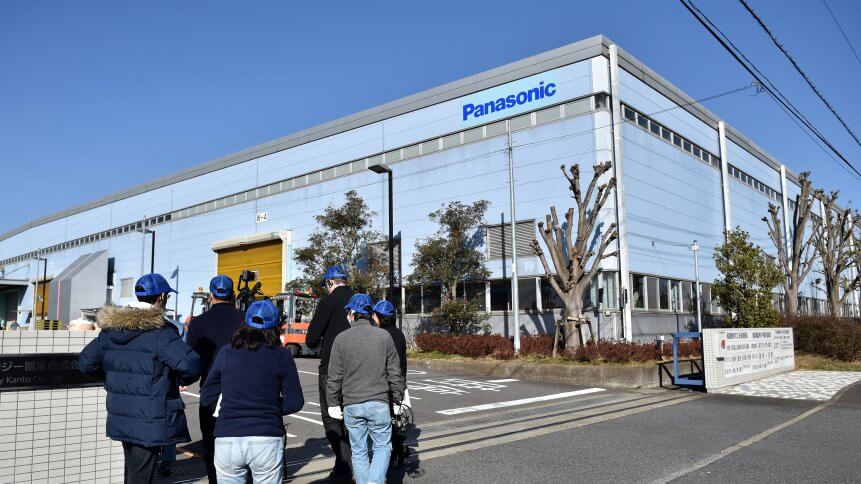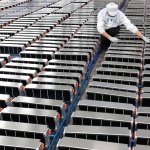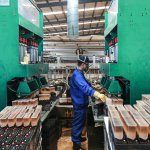Can new Panasonic battery help Tesla produce more affordable EVs?

- Panasonic claims that the new 4680 battery cells would reduce production costs while adding up to 16% more range
- The Japanese tech giant said it would build a new production facility at its Wakayama factory in western Japan to make 4680 battery cells
- Tesla is already building Model Ys at its Austin, Texas plant with 4680s from the Japan pilot facility
When Elon Musk teased Tesla’s purported game-changer electric cars‘ battery back in September 2020, the company’s longtime Japanese cell supplier Panasonic announced that it will begin mass producing the new battery this year, in 2022. This week, Panasonic finally revealed that it will begin production of the new lithium-ion batteries by the end of this month. The cells, known as ‘4680’, will be made exclusively for Tesla first.
The Japanese company unveiled the battery for the first time in October last year. The 46-millimeter wide and 80-millimeter tall battery is around five times bigger than those currently supplied to Tesla. They will eventually replace the existing 2170 cells that have a 21-millimeter diameter and a length of 70 millimeters.
A bigger battery capacity means, in effect, that the US electric vehicle (EV) maker may soon be able to lower Tesla production costs. The larger size is designed to pack more power into cells. “We get five times the energy with six times the power and enable 16% range increase just form factor alone,” said Andrew Baglino, Tesla’s senior vice president of powertrain and energy engineering, at a battery technology day the company held back in September 2020.
For an electric vehicle, more range and power means that essentially, fewer batter cells can do more. That will help reduce EV battery costs, which are the biggest reason EVs cost more to purchase than gasoline-powered cars. Panasonic said it was building a new production facility at its Wakayama factory in western Japan to produce the new 4680 battery cells.
A month prior to unveiling this production announcement, Panasonic announced during CES 2022 that it aims to make cobalt-free batteries available for Tesla’s EVs within the next couple of years. “Two or three years from now, we will be able to introduce a cobalt-free, high energy-density cell,” Panasonic of Japan’s head of energy technology and manufacturing, Shawn Watanabe, proclaimed.
Usually, the cobalt used in lithium-ion batteries for EVs keeps the prices high. Due to that, batteries generally take up to 30%-40% of an electric vehicle’s cost. Tesla has been hyping up the 4680 battery cells for sometime now, and as per a recent Reuters report, there’s a production start date in sight for the batteries at its pilot manufacturing plant in California.
YOU MIGHT LIKE

Why the Battery Passport will matter for electric cars
Tesla is currently building its Model Y at its Austin, Texas plant using 4680s from that very pilot facility. Tesla has been piloting production of the new cells at its Kato Road facility in Fremont too, and at the company’s Q3 2021 earnings call in early October 2021, Tesla senior VP Drew Baglino said the first vehicles with 4680 cells would be delivered by early 2022.
He also explained that Tesla’s current flagship Model S has a range of about 650 km on a single charge. With the new battery, calculations show its range will improve to around 750 km. Tesla initially intended to produce the batteries in-house, mainly to reduce potential disruptions from relying on external suppliers like Panasonic. However, ahead of the unveiling of the new 4680 battery cell in 2020, Musk confirmed in a series of tweets that his company would continue to buy battery cells from other producers.









